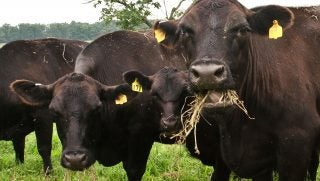In agriculture, we have to be prepared for Mother Nature’s ever-changing activities — no two years are the same. On Black Friday, a climate change report was released causing some agriculture companies to take action on their own. The report showed agriculture could soon be changing, some initially for the good — such as initial increased yields due to higher carbon dioxide levels and warmer temps — but overall decline in the long run. In the agriculture industry we are good at adapting to whatever challenges we may face.
Due to the report, Syngenta joined with 50 chief executives and global business leaders to urge world leaders, heads of government, and the international community to deliver an enhanced, ambitious action plan to tackle climate change.
The Alliance of CEO Climate Leaders, under the auspices of the World Economic Forum, has called for action ahead of the 24th Conference of the Parties to the United Nations Framework Convention on Climate Change, to be held next month in Poland. Syngenta Chief Executive Erik Fyrwald said, “Climate change requires strong leadership and collective action. We all have a role to play through innovation, commitment and collaboration and we have to find better solutions, faster.”
Syngenta’s commitment to addressing climate change includes:
- Supporting farmers in the adoption sustainable agricultural practices and technologies like minimum tillage and conservation agriculture. In 2017, Syngenta reference farms achieved a 14 percent improvement in greenhouse gas emission efficiency;
- Setting science-based targets to reduce our carbon footprint;
- Co-chairing the Climate Smart Agriculture 100 project, bringing together 100 leading companies to make a science-based and measurable commitment by 2030 across the three pillars of productivity, resilience, and mitigating greenhouse gas emissions;
- As an active participant in the Race to Zero2, enhancing soil health and fertility on at least 2 million hectares of farmland in China by 2023;
- Working with the World Business Council for Sustainable Development, the World Economic Forum, and the Global Alliance for Climate Smart Agriculture, driving policy advocacy and promote CSA approaches throughout entire food value chains.
“Climate change poses severe and distinct threats to food security, rural communities and economies. As a member of the Alliance we firmly believe that business is part of the solution and has a vital role to play in tackling climate change. As one of the world’s leading agricultural companies we are therefore committed to taking a holistic science based approach meeting the challenge. We are investing more than $1 billion every year in research and development and are working with policy makers, scientists, civil society, and the investment community to try and achieve a coherent approach”, said Mr Fyrwald.


